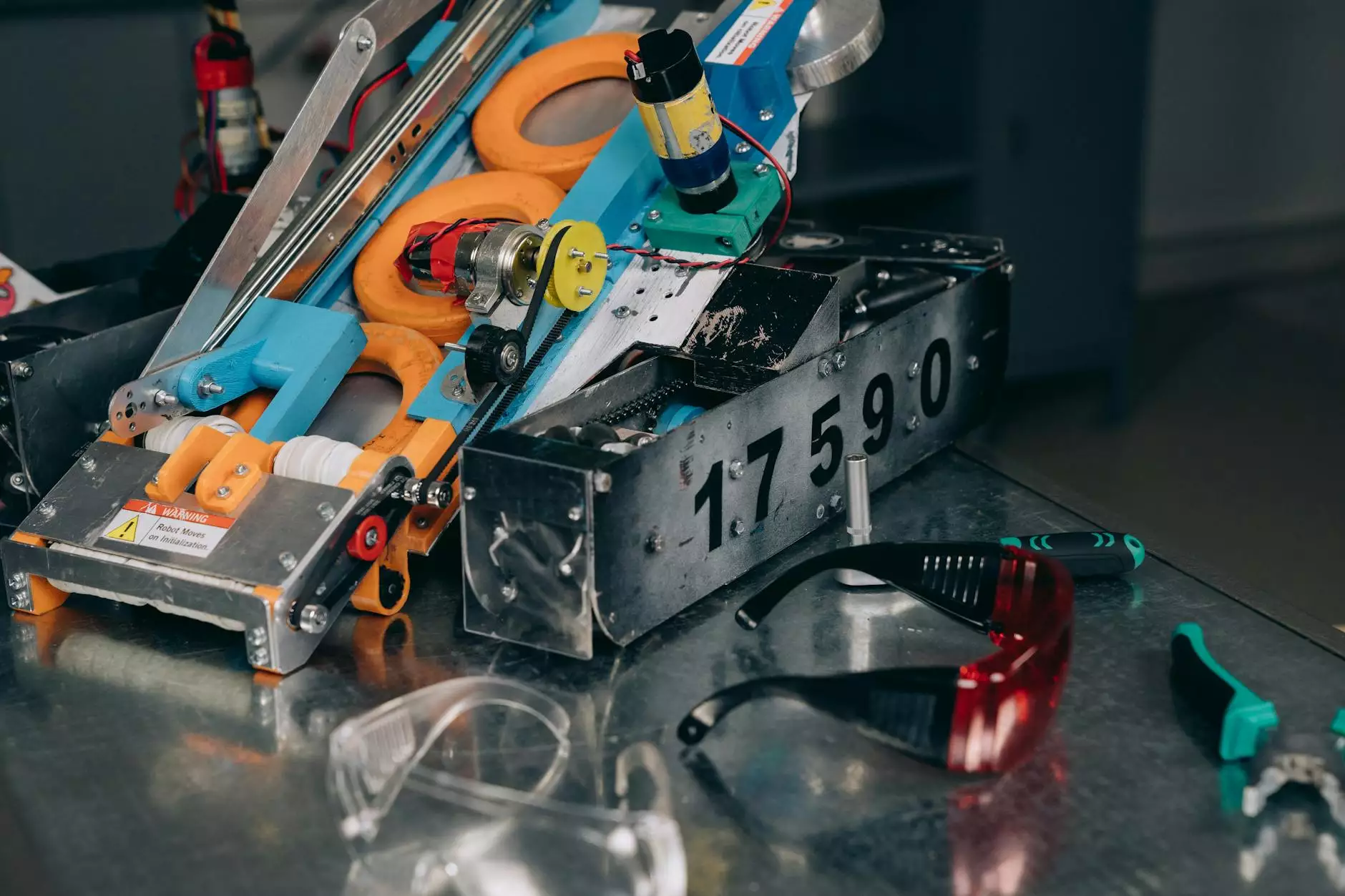The Power of Control Systems and Machine Learning in Business

Control systems and machine learning are two revolutionary technologies that have significantly transformed the business landscape. Together, they offer organizations unparalleled capabilities for improving efficiency, automating processes, and driving decision-making based on data analytics. In this article, we will explore how these technologies impact various aspects of business, focusing on content management services, business process automation, and data governance systems.
Understanding Control Systems
Control systems are essential tools used to manage, command, and regulate the performance of various mechanical and electronic processes. In the business context, control systems help in monitoring operations, maintaining quality, and ensuring regulatory compliance. Key components of effective control systems include:
- Sensors: Devices that collect data from operations
- Controllers: Systems that process sensor data and make decisions based on predefined algorithms
- Actuators: Mechanisms that implement the control commands from the controller
- User Interfaces: Platforms where operators can interact with control systems
By integrating machine learning into control systems, businesses can leverage real-time data analysis and adjust operational parameters dynamically. This adaptive control is vital for agile responses to market changes and operational challenges.
The Role of Machine Learning in Business
Machine learning, a subset of artificial intelligence, enables systems to learn from data and improve their performance over time without explicit programming. This capability is particularly valuable in business settings. Here are some core advantages of implementing machine learning:
- Predictive Analytics: Utilizing historical data to predict future trends and customer behaviors
- Automation: Streamlining repetitive tasks, allowing human resources to focus on more strategic initiatives
- Personalization: Tailoring services and products to meet individual customer preferences
- Enhanced Decision Making: Providing insights that support data-driven decision-making processes
By combining control systems with machine learning, businesses can create a robust framework that not only monitors systems but also optimizes them for higher efficiency and lower operational costs.
Content Management Services: Streamlining Information Flow
Content management services (CMS) are crucial for businesses looking to manage their digital content effectively. With the explosive growth of online information, having a strong CMS is essential. Here’s how control systems and machine learning can enhance content management:
Optimizing Content Delivery
Machine learning algorithms can analyze user interaction with content to identify trends and preferences. By integrating this data into control systems, businesses can automatically adjust the content distribution strategy to ensure the right audience receives the content at the right time. For example:
- Automated recommendations based on user behavior
- Dynamic content adjustments based on real-time engagement metrics
- Content performance analysis to inform future strategies
Improving Content Creation
Using machine learning for natural language processing can assist content creators in generating relevant and engaging articles. This technology analyzes popular topics, keywords, and audience sentiments to suggest content ideas that will resonate with users. Additionally, machine learning can enhance search engine optimization (SEO) strategies, ensuring better visibility for business content online.
Business Process Automation Services: Efficiency Redefined
Business Process Automation (BPA) involves using technology to automate repetitive tasks and processes. Here’s how control systems and machine learning play pivotal roles in enhancing BPA:
Streamlining Workflows
Control systems can automate various business operations, from inventory management to customer service. By using machine learning algorithms, these systems can learn from previous workflows and improve them by:
- Identifying bottlenecks and inefficiencies
- Suggesting optimizations for resource allocation
- Automating notifications and actions based on specific triggers
Enhancing Customer Interactions
Incorporating machine learning into customer service processes can lead to improved interactions. Chatbots powered by machine learning can handle customer queries in real time, learning from responses to provide increasingly accurate solutions. This results in:
- Reduced response times
- Higher customer satisfaction rates
- Lower operational costs in customer support
Data Governance Systems: Ensuring Compliance and Security
Effective data governance is crucial for businesses that handle sensitive information. Control systems and machine learning contribute significantly to data governance by:
Monitoring Data Integrity
Control systems can track data inputs and outputs, ensuring that the data being used complies with organizational standards and regulations. Through machine learning, potential discrepancies or irregularities can be detected early, facilitating proactive measures to safeguard data integrity.
Automating Compliance Checks
With ever-evolving regulations, maintaining compliance can be challenging. Machine learning models can be designed to continuously scan and analyze data against regulatory requirements, providing organizations with:
- Real-time alerts for compliance issues
- Automated reporting capabilities
- Recommendations for remedial actions
The Future of Business with Control Systems and Machine Learning
The synergy between control systems and machine learning is poised to redefine how businesses operate. As technology advances, we can anticipate several shifts in the business environment:
Increased Agility
Organizations embracing these technologies will develop more agile structures, allowing them to adapt quickly to changing market conditions, consumer preferences, and regulatory landscapes.
Enhanced Data-Driven Strategies
Data will become the cornerstone of business strategy. Companies that utilize control systems integrated with machine learning will be able to analyze vast amounts of data to make informed decisions that foster growth and innovation.
Empowered Workforce
Automation will free employees from mundane tasks, allowing them to focus on creative, strategic, and value-added activities. The workforce will become more engaged and empowered, leading to increased productivity and job satisfaction.
Conclusion
Control systems and machine learning present a wealth of opportunities for businesses. From enhancing content management services and streamlining business processes to strengthening data governance, these technologies arm organizations with the tools necessary for success in a competitive landscape. By leveraging these advancements, businesses can optimize their operations, better serve their customers, and drive innovation for the future.
As companies like Intalio continue to pioneer the adoption of these technologies, they set the standard for what the next generation of business operations will look like. Investing in control systems and machine learning is not just an option - it is a necessity for those aiming to thrive in the modern digital age.



